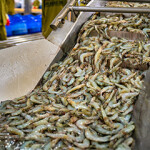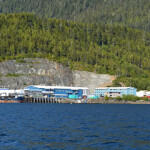Salmon farmers respond to Canada’s Commissioner of the Environment report
Canada is not doing enough to mitigate the risks associated with salmon farming, a report released by the country’s Commissioner of the Environment and Sustainable Development Julie Gelfand has found.
The report cites a lack of national standards for nets and anchoring equipment, suggested that the Department of Fisheries and Natural resources is not doing enough to monitor diseases among farmed fish populations, and recommends that the department must do a better job of tracking drugs and pesticides used in fish farming operations.
The lack of standards for nets has often allowed farmed Atlantic salmon to escape from captivity into the wild. In 2015, 40,000 salmon escaped from farms in Newfoundland and Labrador, New Brunswick and Nova Scotia.
According to Gelfand, the Department of Fisheries has no requirement to monitor the health of wild salmon or the status of the ocean floor beneath salmon net-pen farms. “The department is at risk of being seen to promote aquaculture over the protection of wild salmon,” she said.
Those involved in the salmon farming industry were not particularly pleased with the report, with Newfoundland Aquaculture Industry Association Executive Director Mark Lane firing back with a press release that read, “It is important to note that this audit and subsequent report did not examine regulations and policies at the provincial level or within other federal departments and agencies that provide regulatory oversight of the industry.”
The release draws attention to the fact that, “salmon farming practices in Newfoundland and Labrador are regulated by federal and provincial regulations, and international third-party sustainability certifications.”
“The Government of Newfoundland and Labrador has very stringent regulatory policies and regulations that our industry complies with; such as our Code of Containment, which exists as a current condition of licensing. In the report, the Commissioner also stated that Canadian producers demonstrate ‘high compliance’ with licensing conditions,” the release continued. “We expect Canadian regulations to evolve to reflect modern advances in our industry.”






Share